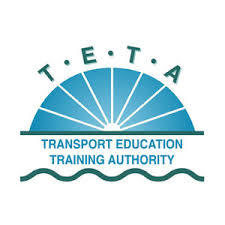Free Training & Career Tips... Subscribe to Get Weekly Career Tips

By Subscribing You are Agreeing to Terms and Conditions
The Transport Education Training Authority (TETA) is the Sector and Training Autohority (SETA) that is geared towards providing a Quality Assurance and Skills Development Framework that is cost effective as well as innovative for the purpose of exceeding the stakeholder and government Service Level Agreement (SLA) along with its overall requirements. TETA is one of 21 SETAs that deal with different industries in South Afria. This article looks into the various aspects that involve TETA’s functions and purpose and overall strategic intent.
TETA operates within the following legislative mandates as provided courtesy of the TETA website:

TETA has many functions that cover:
The Transport Education and Training Authority (TETA) also operates within the following sub-sectors:
The Aerospace sector is the industry that employers and employees are grouped together for the purpose of the transportation and related activities that involve aircraft and space craft and related components. For this sector, TETA is responsible for:
Each year over 4 billion people as well as 150 tons of cargo travel by air internationally. This is enabled through a dedicated workforce comprising over 9 million professionals in the aviation industry globally which includes more than 25 000 South African professionals.
It is reported that approximately 63 million jobs are incumbent upon the aviation industry at a global level and it is predicted that an estimated 36 million new aviation industry jobs could be created worldwide by 2030. TETA’s role therefore is vital in helping South Africa’s aviation workforce achieve the education and training necessary to enable this country to compete at a global level.
TETA’s role therefore consists of:
TETA is also involved in the Forwarding and Clearing sector where it concerns applying value added solutions via organisations and their distribution channels to the management of the international components of the procurement and acquisition and the transport and storage of parts and materials and final inventory.
Using all modes of transport including, sea, air, rail and road, the forwarding and clearing industry which is globally referred to as the “Architects of World Transport, facilitates the international supply chains and logistics processes of goods on behalf of the importing and exporting industry by applying cost-effective dedicated solutions. In this light the forwarding and clearing sector is responsible for the movement of 90% of international trade in South Africa.
To enable the South African industry to compete globally the evolution and growth in this industry has meant that TETA has strategically collaborated with industry stakeholders to facilitate the development of the required occupational qualifications and skills to enable South Africa to meet the required standards.
This sector has, in the past decade, evolved into what is now known as the world of supply chain management which recognises the important role that international logistics plays within the management of worldwide global supply chains in providing importers and exporters with end-to-end supply chain solutions.
TETA’s involvement in freight handling concerns the handling, stock control and storage of various cargoes via airports, ports, factories, distribution centres and other depots.
This sector plays a pivotal role in the supply chain management system and provides an essential support service to industries across the spectrum of all modes of transport.
There have, however, been many challenges in this sector due to the advent of the 4th Industrial Revolution (4IR) in the sense that the industry is rapidly adopting widespread computerisation and the computer literacy skills of employees are lagging behind.
TETA plays a role in the maritime sector with regards to all seafaring vessels and their associated services on land where it concerns:
Over 95% of South African trade as measured by volume is transported by sea via South Africa’s commercial ports, of which there are seven, and this places South Africa in the top 12 sea- trading countries. Hence, the maritime sector comprises a workforce garnered from fishing and the merchant shipping arena as well as port authorities.
TETA’s strategic plan involves the Maritime Chamber as one of its implementation units that focusses on maritime priorities and strives to align industry requirements to TETA’s overall mandates and commitments.
It is also evident that only 0.3% of the world’s carrying capacity is controlled by South African companies which offers a gap for important growth opportunities inherent within this sector.
TETA is also involved in activities that relate to:
The TETA-driven skills development training initiatives that are currently in place in this sector are annually reviewed to determine consistent relevance in order to strengthen the sector using Sector Skills Plans (SSPs). Transnet’s capacity currently stands at over 200 million tons on an annual basis.
Over 90 000 people are employed by the rail industry mainly in two subsectors, namely PRASA in terms of passenger services and Transnet that handles goods and freight services. Many medium sized rail operations play a vital role in the sector from an economic perspective with the bulk of the tonnage in mineral ore and coal transportation to local as well as foreign markets.
The rail sector has, however, conceded its traditional advantage in favour of the road freight sector which has become more competitive. And since the road freight sector is predominantly a privately-owned sector it has therefore become more competitive with improved road networks across the country.
TETA is also involved in road freight where it concerns the movement of goods for reward by means of goods vehicles on a public road.
The road freight industry spans both private and public transportation services and includes the likes of trucks that carry freight:
Approximately 70 000 employees comprise this industry which handles the daily transportation of freight and recently saw an increase in the volume of goods transported from ports and markets or production sites. It is calculated that 80% of all freight handled in South Africa is carried out by road with the road freight market amounting to approximately 640 million tonnes of traffic annually.
TETA is concerned with the movement of passengers via bus for reward as well as the maintenance and management of such vehicles.
As defined by the National Land Transport Transition Act, the bus industry consists of the following types of vehicles that provide passenger transport services:
This sector greatly contributes towards the country’s economic development.
TETA is involved in the taxi industry which deals with the transportation of individuals for reward via taxi services carrying up to 18 passengers in terms of The National Land Transport Act of 2009 (NLTA).
South Africa’s taxi industry is therefore concerned with the following vehicles other than buses that transport passengers for reward via road:
Between 400 000 and 600 000 people are employed in the taxi industry with 95% of the workers being of African persuasion and only 2% of the industry comprising of female workers. Approximately 69% of households is estimated to make use of these services daily with over 300 000 taxi owners/operators in the country.
The TETA accreditation process involves the certification, involving a particular time period, whereby a person, body or institution is able to fulfil a particular function as set up by the South African Qualifications Authority (SAQA) quality assurance system in terms of the Act.
TETA follows a dedicated process which anyone who is interested can refer to the following documentation as published on the TETA website.
| Provider self- evaluation and Site Report | ||
| QAFM01 Rev 10 Provider Accreditation Form | ||
| QAFM05 Rev 07 LPE Self Assessment Form | ||
| Accreditation Guidelines | ||
| Monitoring and Auditing Tool | ||
| Alignment Matrix |
Applications for TETA Discretionary Grants 2021 are opening during mid-November 2020.
Discretionary Grants are prioritised in terms of Hard to Fill Vacancies (HTFV) and critical skills that exist within the sector. Members should ensure that they have a Skills Development Facilitator (SDF) registered with TETA and applications should be made online.
Registration: In order for a company to submit an application for a mandatory grant a Skills Development Facilitator (SDF) needs to be appointed who will handle the submission on their behalf. If the company employs more than 50 staff a Training Committee needs to be in place.
Although each Seta, including TETA, facilitates the general recruitment and implementation of all learnerships, the onus is not on the Seta but falls instead on the shoulders of the employer, the training provider and the service provider to handle the recruitment of learners. Therefore, the processes and steps involved for each participating body must be followed and learners should via this process defer to their employers if they would like to apply to participate in a learnership.
Transport Education Training Authority (TETA) appliations for the 2021 Unemployment bursary are now open. Please visit the TETA website for further details.
Who should apply:
Qualifications funded through the TETA Bursary Scheme are dictated by industry needs and may change from time to time.
Copyright text 2024 by Business Optimization Training Institute.